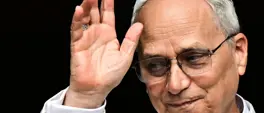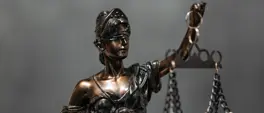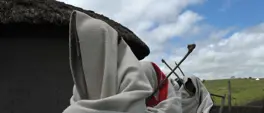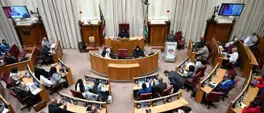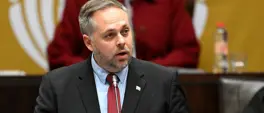YONELA DIKO: The ANC Youth League is so much more than a tool of agitation
Yonela Diko
17 September 2024 | 7:32The importance of the ANC's youth league as a way of advancing ideas and changing the future cannot be overstated. It must be used as more than an elective conference aid, because it is capable of breaking new ground, writes Yonela Diko.
In September 1949, the African National Congress (ANC) Youth League (ANCYL), formed five years earlier, effectively took over the ANC at the mother body’s national conference, turning the organisation from petitions and deputations into one of action.
In the 37 years prior, the ANC had embarked on a soft approach to the struggle, pleading for concessions and privileges for the black population from the white colonial rulers, misguided in thinking that such pleading would appeal to the white conscience and lead to the extension of the franchise of full rights and equality to black people without a fight.
In the meantime, the white colonial rule continued with its evil policies and laws - the Land Act of 1913, the Natives Urban Areas Act, the Native Administration Act, and the 1936 Hertzog legislation. Ultimately, a new generation of young black leaders was bred. Ones that were not going to plead with the colonial government any longer, and were ready to stand up and fight for those rights.
The ANC was never the same after that 1949 conference.
The following year, the ANC embarked on the Freedom Day Strike in May 1950, then the National Day of Protest the following month, and later the defiance campaign of June 1952.
The ANC was reborn, and the youth league was leading the rebirth.
The League brought militancy to the organisation and mass mobilisation of the people to prepare themselves for battle. There would be no collaboration with the regime, and there was to be widespread civil disobedience.
The ANCYL championed African Nationalism and African people’s right to self-determination. The contempt for Africans by the colonial and apartheid government was never to be tolerated. The league also championed the Freedom Charter, and that South Africa belonged to all who lived in it, black and white.
This new wave of militancy brought by the ANCYL - the defiance campaigns, the mass actions, and the boycotts- led to the banning of political parties in 1960. This would lead to a 30-year struggle that had to be conducted underground and in foreign lands until February 1990, when all parties were unbanned and political prisoners released from prison.
RETURN OF THE YOUTH LEAGUE
After 1990, the conditions of struggle were vastly different from the struggle of the 1940s the youth league had led so valiantly.
The task and responsibility of rebuilding a country was a far more complicated affair than fighting a clear and identifiable enemy.
The ANCYL wanted to continue where it left off as an influential force on the mother body, especially with regard to choosing who the ANC leaders would be, and what programmes of action should be adopted.
However, the election of Peter Mokaba ahead of Rapulane Molekane as President of ANCYL in 1991 signalled a league that prioritised agitation and rabble-rousing over principle and a clear programme of action.
This meant the ANCYL would vacillate over the years, using its influential status to choose who should lead the ANC, sometimes out of principle and clear policy direction as they supported Thabo Mbeki for ANC President in 1997, and also out of defiance and blind loyalty without principle or policy direction as in 2007, when they supported Jacob Zuma.
This reduced the youth league over the years to a tool of ANC electoral conferences, and not an organisation advancing particular programmes and ideas at different epochs of our continued task of reconstruction and development.
ANCYL AS A PREP SCHOOL
The leaders who formed the first National Executive of the youth league - Walter Sisulu, OR Tambo, AP Mda, Robert Sobukwe and others - would go on to lead the nation to the most valiant and bold struggle for freedom until it was finally won. Their courage and unwavering dedication against impossible odds gave us our freedom.
Since then, the ANCYL has been an incubator for the ANC, ensuring the party continues to produce generations of leaders, decade after decade. So it was in the early years of struggle, and so it has been during the 30 years of freedom.
Today, a former youth league president is a Secretary-General of the ANC. All provincial executive committees of the ANC are filled by former youth league leaders. This extends to all provincial executive councils and legislatures.
The youth league is effectively the future of the ANC and government.
This speaks to the importance of this league of the ANC, and why it cannot afford to simply be a tool of agitation for ANC elective conferences, but must advance clear programmes of breaking new ground and taking the country to new heights.
The future belongs to the youth of this country, and the youth league must shape that future and be at the forefront of it.
Yonela Diko is the former spokesperson for the Minister of Human Settlements, Water and Sanitation.
Get the whole picture 💡
Take a look at the topic timeline for all related articles.
Trending News
More in Opinion

12 December 2025 15:34
CHARLES MATSEKE | The Republic of commissions arrives at its point of no return
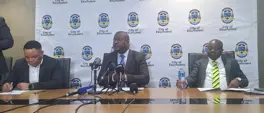
12 December 2025 14:15
REBONE TAU | Ekurhuleni needs bold, decisive leaders to reverse years of capture

12 December 2025 05:13
MANDY WIENER | Searching for a superhero with a spine of steel: Why the position of NDPP matters so much
